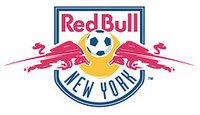Marketers Overlook Search Engines
Key Highlights:
- Forty-one percent of web users find brands through search rather than typing a URL into a browser.
- One of the key drivers of search is TV.
- Laptops share the couch as consumers watch TV with 66.2% of consumers regularly watching TV and using Internet simultaneously.
- Burger King and Pontiac are good examples of integrating TV advertising with search. When it's Super Bowl commercial ran, Burger King purchased keywords/phrases like"Burger King", "Whopper", "Whopperette" and "Super Bowl Commercial". Pontiac's commercial stated, "Don't take our word for it, Google 'Pontiac' to find out!"
- With companies having the ability to bid higher on their competitors keywords and potentially woo away customers, Yahoo is starting to restrict purchases of trademark names only to their owners.
- Marketers should purchase a lot of different words, test them and determine what words work best. It's not always necessary to buy the top position, rather number 2, 3, 4, or 5 may be better because those positions perform well for the cost.
- Purchase keywords that take the length of the buying cycle into account. Buyers start searching using generic terms. As they come closer to purchase, their search narrows to brand names, specific products and locations.
Even though this article has provided me with a good understanding, I'm not sure if I could include search in my promotional plans. I work for a college and we don't have large marketing budgets for each program. Sadly though, I was searching for a specific program earlier today and by page three I still couldn't find our program, but I did find the same program at a college approximately an hour away from us.

